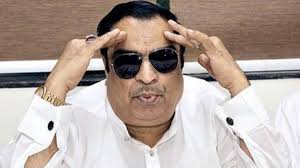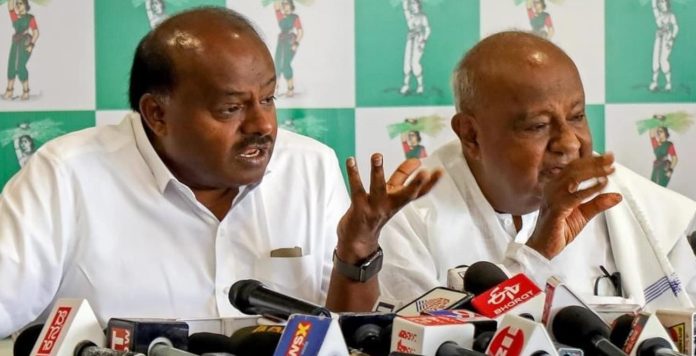– Mohammed Atherulla Shariff
In a tit-for-tat move, the Janata Dal (Secular) national president and former prime minister of India HD Deve Gowda has shown exit door to its state unit president CM Ibrahim and dissolved the unit. “CM Ibrahim has been removed as per the party’s constitution and a new (ad-hoc) president is in place,” he said.
“Kumaraswamy will continue as leader of the legislature party and state president.”
Hitting back, Ibrahim said he would sue the party, maintaining that he still leads the ‘original’ JD(S).
“A majority of MLAs are with me, but they’re being scared off. I know when to call which MLA. They’ll decide,” he said.
 “Under what provision have they dissolved the state unit? As per the JD(S) constitution, I must be given a notice and a no-confidence motion moved against me. They can’t remove me without doing this,” he said, adding that he had no invite for Thursday’s meeting.
“Under what provision have they dissolved the state unit? As per the JD(S) constitution, I must be given a notice and a no-confidence motion moved against me. They can’t remove me without doing this,” he said, adding that he had no invite for Thursday’s meeting.
“Gowda is sacrificing everyone in the party for the sake of his son,” Ibrahim said, accusing the patriarch of promoting only his family.
Trying to paint a different picture, Kumaraswamy said the decision to dissolve the state unit was taken following the Assembly elections.
“Everything will be reorganised to strengthen the party and for no other reason,” he said.
Loss of a third force
The family-based party, which is on a decline in Karnataka politics, says the alliance with the BJP is meant to save the JD(S). It is a repeat act of 2006 when the JD(s) joined hands with the BJP, breaking ties with the Congress, and formed the government. Allegedly the Congress was undermining the JD(S) hence it was essential to save the party.
This time Deve Gowda’s concern for his party that did badly in the 2019 general election as well as in the 2023 assembly election in Karnataka, its worst performance since its birth in 1999, and his appeal to voters should be read in the context of the falling clout of regional leaders and their parties at the national level. However, it is seen as the beginning of the end of a third force in Karnataka.
Big players, big games
While many regional parties are still a formidable force in their respective states, since 2014 the JD(S) example, in many ways, is the story of many regional parties like the Bahujan Samaj Party, Shiromani Akali Dal, Shiv Sena and Telugu Desam Party. Having been thrown off-gear with the rise of the BJP and unable to have their way without antagonising India’s new predominant party, the clout of regional parties in political affairs at the Centre has diminished considerably. Some of them even face an uncertain future with their diminishing performance in state and national elections.
Minorities’ concern
With the JD(S) decline and two-party system emerging in Karnataka a vertical division among the voters is inevitable. The choice for minorities gets restricted to one secular party, a taken for granted case. How their interest will be taken into consideration is left to anybody’s imagination.




